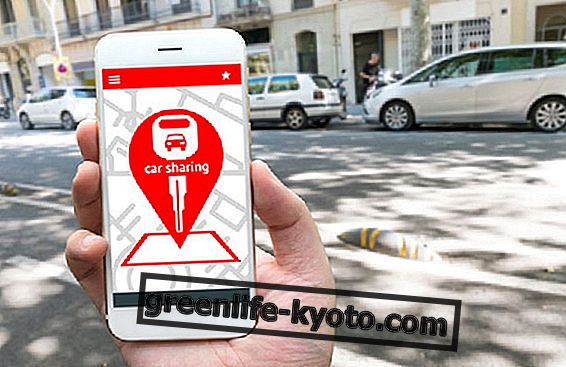
Car sharing is growing: few Italians do not like the shared car
Car sharing figures in Italy are growing. According to Ansa, which reports the data released by ANIASA (Confindustria's National Car Rental and Automotive Industry Association), many Italians like to share a car in the city, especially men in their forties who live in the metropolis.
More than a million people have decided to enroll in a car sharing company . If Milan and Rome are the cities in which car sharing seems to work the most, Turin and Florence also seem to register considerable growth.
Opposite trend for Naples, which seems not to like it. And in the meantime, the Oltralpe surpasses us: in Paris, car sharing is with Italian electric cars, which, however, struggle to take off. (See Le Monde).
Milan and the new car sharing rates
We have seen great success with car sharing. In fact, more and more families decide to sell the car or freeze the insurance because car sharing works.
Indeed, last August the news from Repubblica of an implementation of the service with new competitive rates, which provide special packages for long-term rentals .
The aim is to "bring sustainability ever more into the center of urban mobility", as announced by the Milan municipality website. Also here, you can find the list of more and more companies offering this type of service, at the time there are six.
Turin at the service of the periphery
Even in Turin, car sharing is working so well that, as reported by La Stampa, it is trying to extend it to the belt and to the neighboring municipalities, thus putting itself at the service of those people who live in the province and in the peripheral areas; the municipality of Turin specifies on the site the companies that currently offer the car sharing service, at the moment there are three.
The page also offers information on urban mobility apps, which aggregate all sharing and public and private transport services into a single map.
Florence increases the car fleet
Also in Florence there are currently three car sharing operators, as indicated by the municipality's website.
The objective of the city, as indicated last August by Il Corriere Fiorentino is to arrive in 2020 with a thousand car sharing cars available, 80% more than the current ones. This is why a tender was announced to increase the fleet by 400 units.
Rome: car sharing arrives at the airport
In Rome, after the municipale carsharing service, active since 2005 first in an experimental form and then gradually more stable, private services have arrived, at least five. Even in the capital the car sharing service works and grows: Ansa announces that the service is now also provided at Fiumicino airport, with ample dedicated parking spaces.
Naples tries again with car sharing
Thumbs down for Naples: car sharing here just doesn't seem to take off . The same private companies do not go to these areas, as Il Mattino communicates extending an experimental project that allows citizens to access the incentives recognized by the "Car Sharing Municipalities Initiative" (ICS) to encourage the scrapping of private vehicles and use of local public transport and car sharing.
Palermo and the free floating
In Palermo both bike sharing and car sharing work. Here, where both the numbers of cars and subscriptions and bookings increase proportionally, an attempt will be made to increase the fleet with environmentally friendly vehicles, improving tariffs and the telematic service, integrating it with free floating, or a free-flow system that will allow withdrawing and release the car in any place in an urban area of almost five square kilometers.
The search for a free car will take place through a smartphone and PC application, thanks to geolocation . all considering both the urban and extra urban areas.
Cagliari, car sharing like it
As reported by the portal L'Automobile, car sharing here is liked. So much to mark important numbers of users with respect to departure. Even in the Sardinian city there is a greater focus on sustainability and the environment, with more and more people leaving their cars and choosing alternative means, such as bicycles or feet, to get to work.













